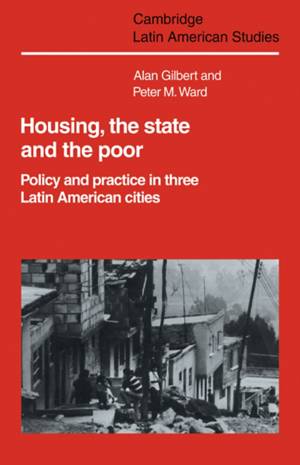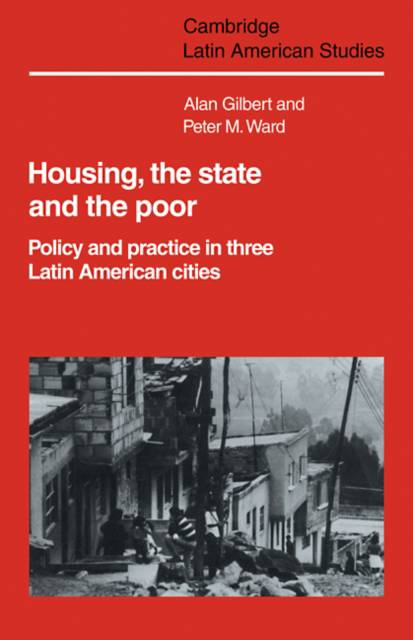
- Afhalen na 1 uur in een winkel met voorraad
- Gratis thuislevering in België vanaf € 30
- Ruim aanbod met 7 miljoen producten
- Afhalen na 1 uur in een winkel met voorraad
- Gratis thuislevering in België vanaf € 30
- Ruim aanbod met 7 miljoen producten
Zoeken
Housing, the State and the Poor
Policy and Practice in Three Latin American Cities
Alan Gilbert, Peter M Ward
€ 60,95
+ 121 punten
Uitvoering
Omschrijving
Originally published in 1985, this book is concerned with the housing and service needs of the poor in Latin America and how they are articulated and satisfied. It examines the aims and implementation of government policies towards low-income housing dwellers and tries to relate those policies to the wider interests of the state. It discusses how the poor perceive the constraints on barrio servicing and improvement, their involvement in community organisations and the role the community and its leaders play in influencing state action. Since housing and servicing issues directly impinge on the interests of politicians, bureaucrats, landowners and real-estate developers, as well as on those of the poor, patterns of provision mirror closely the nature of the relationships between the poor and the wider urban society. The main theme of this book is thus the allocation of resources within urban society and the operation of political and administrative power at city level. The book will interest not only those concerned with housing and planning but also those who wish to understand social and economic policies towards the poor in most kinds of Third World city.
Specificaties
Betrokkenen
- Auteur(s):
- Uitgeverij:
Inhoud
- Aantal bladzijden:
- 336
- Taal:
- Engels
- Reeks:
- Reeksnummer:
- nr. 50
Eigenschappen
- Productcode (EAN):
- 9780521104548
- Verschijningsdatum:
- 19/03/2009
- Uitvoering:
- Paperback
- Formaat:
- Trade paperback (VS)
- Afmetingen:
- 140 mm x 216 mm
- Gewicht:
- 426 g

Alleen bij Standaard Boekhandel
+ 121 punten op je klantenkaart van Standaard Boekhandel
Beoordelingen
We publiceren alleen reviews die voldoen aan de voorwaarden voor reviews. Bekijk onze voorwaarden voor reviews.











